For many years, this conference has been the perfect platform for bringing together the scientific, industrial and regulatory communities, dealing with the assessment of pesticide residues in food. Learn about the latest developments in risk assessment, the setting of maximum residue limits as well as regulatory and guideline updates.
The popular Akademie Fresenius Conference “Food Safety and Dietary Risk Assessment” enters its next round: It is the place to be to receive all the latest updates, to meet your peers and to join important discussions in a comfortable conference atmosphere. Reason enough for many participants to attend regularly every year. So don’t miss out to secure your place for this year’s event!
The Conference will be taking place in Dusseldorf/Germany on 25 and 26 April 2024 and you can follow all the exciting contributions via our live stream!
Would you instead prefer to join on-site in Dusseldorf? Then you can find further information here.
Guideline developments
Establishment of MRLs
Evaluation of metabolites
Dietary risk assessment and cumulative risk assessment
Professionals working in the fields of:
Sectors that should take part:
Picture Credit: © Leart – AdobeStock
PLEASE NOTE: The indicated times refer to Central European Time CEST.
For further time zones, please view here.
Monika Bross, BASF, Germany
Caroline Harris, Exponent International, UK
The presentation slots include sufficient time for questions and answers.
Opaline Journeau, French Agency for Food, Environmental and Occupational Health and Safety (ANSES), France
Britta Michalski, German Federal Institute for Risk Assessment (BfR), Germany
Christian Prohaska, Austrian Agency for Health and Food Safety (AGES), Austria
Karsten Hohgardt, German Federal Office of Consumer Protection and Food Safety (BVL), Germany
Michael Doherty, U.S. Environmental Protection
Agency (EPA), USA
Dee Murnane, Syngenta, UK
Carsten Kneuer, German Federal Institute for Risk Assessment (BfR), Germany
Johannes Diederich, German Federal Institute for Risk Assessment (BfR), Germany
Bruno Dujardin, European Food Safety Authority (EFSA), Italy (virtually)
Klaus Leder, Austrian Agency for Health and Food Safety (AGES), Austria
PLEASE NOTE: The indicated times refer to Central European Time CEST.
For further time zones, please view here.
Monika Bross, BASF, Germany
Caroline Harris, Exponent International, UK
Bruno Dujardin, European Food Safety Authority (EFSA), Italy (virtually)
Emma Ingram, Health and Safety Executive (HSE), United Kingdom
Michael Doherty, U.S. Environmental Protection Agency (EPA), USA
Jacob van Klaveren, RIVM – National Institute for Public Health and the Environment, The Netherlands
Ingo Großsteiner, Austrian Agency for Health and Food Safety (AGES), Austria
Charlotte Trenteseaux, French Agency for Food, Environmental and Occupational Health and Safety (ANSES), France
Name
Unternehmen

Monika Bross
BASF, Germany
Monika Bross is analytical chemist by training; she has been working at BASF Agricultural Center in Limburgerhof for more than 30 years. Within BASF she has been involved in the conduct of residue and metabolism studies, but also in dietary exposure assessments and the preparation of dossiers for international submissions. She is member of association expert teams dealing with residue related topics (including MRL setting) and the implementation of the EU Transparency Regulation.
mehrweniger
Johannes Diederich
German Federal Institute for Risk Assessment (BfR), Germany
Johannes Diederich is a Food Chemist with nearly eight years experience in residue analytics and has been working as a Scientist of the Unit Residues and Analytical Methods in the Department Pesticides Safety at the German Federal Institute for Risk Assessment (BfR) since 2020. He is involved in the assessment of the residue behaviour and health risk of plant protection products and in the course of the European and national approval of active substances and authorisation of products.
mehrweniger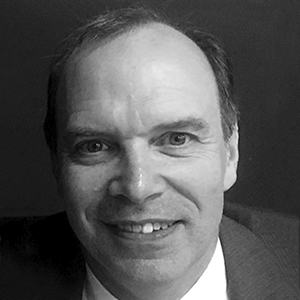
Michael Doherty
U.S. Environmental Protection Agency (EPA), USA
Michael Doherty’s professional career started with the Pesticide Degradation Laboratory in the USDA’s Agricultural Research Service, where he spent 13 years working on pesticide residue profiles in soil and environmental modeling. In 1997, Michael joined the EPA’s Office of Pesticide Programs’ Health Effects Division as a residue chemist and risk assessor. Over the years, his role in OPP has taken a more international focus as a member of the OECD’s Residue Chemistry Expert Group and as a member of the FAO panel to the JMPR.
mehrweniger
Bruno Dujardin
European Food Safety Authority (EFSA), Italy
Bruno Dujardin is a senior scientific officer at the European Food Safety Authority (EFSA), where he has gained extensive experience in the regulatory risk assessment of chemicals. Recently, he took up a new role as team leader within the Methodology and Scientific Support unit. His team provides transversal support on exposure assessment, statistical data analysis and modelling. Within this capacity, Bruno is also responsible for steering the implementation of more holistic approaches that account for combined exposure to multiple chemicals.
mehrweniger
Ingo Großsteiner
Austrian Agency for Health and Food Safety (AGES), Austria
Ingo Großsteiner studied nutrition and food science in Vienna. He is a highly experienced professional with over ten years of experience in various aspects of product and active substance safety, with an active interest in food safety and sustainable food systems and started working at AGES in 2014.
mehrweniger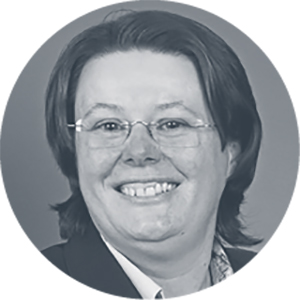
Caroline Harris
Exponent International, UK
Caroline Harris is a Principal Scientist in Exponent International’s UK office and has been the Centre Director for Chemical Regulation and Food Safety for over 20 years. After many years as a Regulator at CRD, she continues to be involved with MRLs, import tolerances and pesticide residues in international trade. She also remains highly active in the field of consumer risk assessment.
mehrweniger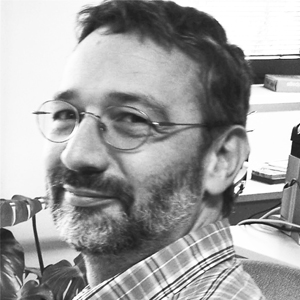
Karsten Hohgardt
Geman Federal Office of Consumer Protection and Food Safety (BVL), Germany
Karsten Hohgardt is the Head of the unit responsible for risk management in the field of toxicology and residue behaviour at BVL. His main experience lies in MRL setting and residue behaviour.
mehrweniger
Emma Ingram
Health and Safety Executive (HSE), UK
Emma Ingram holds a degree in Chemistry with toxicology and forensics and has been working as a Scientific Officer for HSE since 2015, undertaking assessment of data submitted in support of pesticide active substances, products and MRLs in accordance with Assimilated Regulation 1107/2009 and Assimilated Regulation 396/2005, with a strong focus on consumer risk assessment. She is part of the GB and NI monitoring team, undertaking dietary intake assessments and drafting risk assessments. In addition to this she is part of a GB working group considering how chronic dietary exposure assessment is undertaken in the UK across government organisations, part of the OECD working group on pesticide residues and MRL setting in honey and is leading on the development of a GB toxicological reference value database.
mehrweniger
Opaline Journeau
French Agency for Food, Environmental and Occupational Health and Safety (ANSES), France
Opaline Journeau is an Agronomy Engineer and joined ANSES in 2020 in the Residue and Food Safety Unit in charge of pesticide and biocide consumer risk assessment.
mehrweniger
Klaus Leder
Austrian Agency for Health and Food Safety (AGES), Austria
Klaus Leder studied technical Chemistry in Vienna and has been working at AGES since 2011. At AGES, he was involved in the assessment of plant protection products as well as active substances. In 2019, he became overall coordinator for active substances for which Austria is responsible (new & existing). He has been onboard with the IUCLID project from its first start in November 2019 and is also a member of the EFSA PSN Group as well as the IUCLID subgroup dealing with further development of that tool.
mehrweniger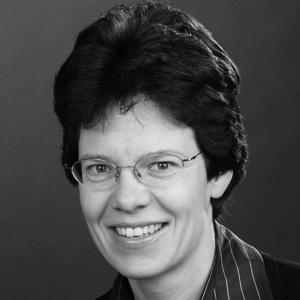
Britta Michalski
German Federal Institute for Risk Assessment (BfR), Germany
Britta Michalski is a Chemist by training and has been working in the German Federal Institute for Risk Assessment (BfR) since 2004. She is Head of the Unit Residues and Analytical Methods in the Department Pesticides Safety. Her group is involved in MRL setting, approval and authorisation procedures for pesticides and biocides. Britta is member of OECD’s Residue Chemistry Expert Group since more than 15 years and currently co-chairs the Writing Group on the update of the Test Guideline on Storage Stability. She has been leading several EFSA projects in the area of pesticide residues and processing factors.
mehrweniger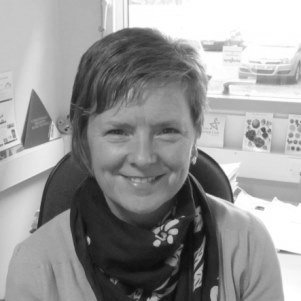
Dee Murnane
Syngenta, UK
Dee Murnane has been working within the crop protection industry for more than 30 years, starting out in residue chemistry and latterly in human safety assessment. She is a Product Safety Global Project Lead at Syngenta focussing on new active substance projects, and leads the CropLife Europe Residue Definition Group; she is also a co-lead of the OECD Working Group on Residue Definition.
mehrweniger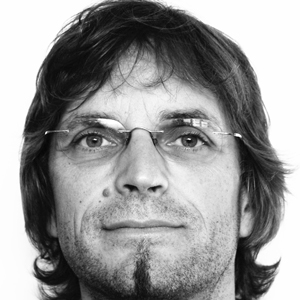
Christian Prohaska
Austrian Agency for Health and Food Safety (AGES), Austria
Christian Prohaska studied food and biotechnology in Vienna. He worked for public bodies dealing with the risk assessment of plant protection products before he gained a postgraduate degree in toxicology and started working at AGES in 2002.
mehrweniger
Charlotte Trenteseaux
French Agency for Food, Environmental and Occupational Health and Safety (ANSES), France
Charlotte Trenteseaux holds a PhD in Physiology and Nutrition. After 2 years of research in the private sector she switched to regulatory affairs at ANSES in 2020. She is a Scientific Risk Assessor in the Residue and Food Safety Unit in charge of pesticide and biocide consumer risk assessment.
mehrweniger
Jacob van Klaveren
RIVM - National Institute for Public Health and the Environment, The Netherlands
Jacob van Klaveren is coordinating the European funded project real-life mixtures granted under the Partnership of the Risk Assessment of Chemicals (PARC) and he is a member of the PARC Management Board responsible for innovation in regulatory risk assessment of chemicals in Europe. Since 2015, Jacob has been coordinating the EFSA-RIVM partnership on mixtures of pesticides. He coordinated the EU funded projects EuroMix and Acropolis in the period 2011-2020.
mehrwenigerTeilnahmepreis: € 1.195,00 zzgl. MwSt.
Im Teilnahmepreis sind folgende Leistungen enthalten:
Vertreter:innen einer Behörde oder einer öffentlichen Hochschule erhalten einen ermäßigten Teilnahmepreis von € 695,00 zzgl. MwSt. (Nachweis per Fax oder E-Mail erforderlich). Der Sonderpreis ist nicht mit anderen Rabatten kombinierbar.
Gruppenrabatt
Bei gemeinsamer Anmeldung aus einem Unternehmen erhalten die dritte und jede weitere Person 15 % Rabatt.
Buchen ohne Risiko
Die Teilnahme an unseren Online-Veranstaltungen können Sie bis zu 1 Woche vor Veranstaltungsbeginn kostenfrei und ohne Angabe von Gründen schriftlich stornieren. Bei späteren Stornierungen sowie bei Nicht-Login zur Online-Veranstaltung können keine Teilnahmegebühren erstattet werden.
Sie erhalten jedoch in diesem Fall von uns nach der Veranstaltung Zugang zu den Dokumentationsunterlagen.
Eine Ersatzperson können Sie jederzeit kostenfrei benennen.
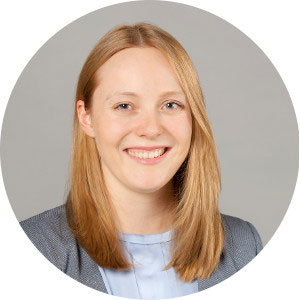
Claudia Werner
Inhalt und Konzeption
+49 231 75896-83
cwerner@akademie-fresenius.de

Claudia Werner
Inhalt und Konzeption
+49 231 75896-83
cwerner@akademie-fresenius.de

Claudia Werner
Inhalt und Konzeption
+49 231 75896-83
cwerner@akademie-fresenius.de
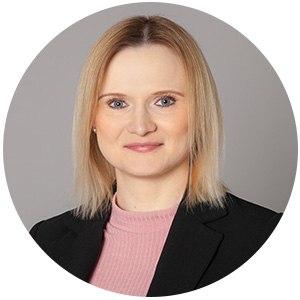
Jennifer Zerth
Organisation und Teilnehmermanagement
+49 231 75896-79
jzerth@akademie-fresenius.de

Jennifer Zerth
Organisation und Teilnehmermanagement
+49 231 75896-79
jzerth@akademie-fresenius.de
Präsentieren Sie Ihr Unternehmen auf unserer Veranstaltung.
Persönlich und zielgruppengenau stellen Sie Ihre Produkte und Dienstleistungen vor. Gerne informieren wir Sie unverbindlich über die verschiedenen Möglichkeiten – von der Auslage von Produktinformationen bis hin zum Ausstellungsstand.
Gerne beraten wir Sie persönlich:
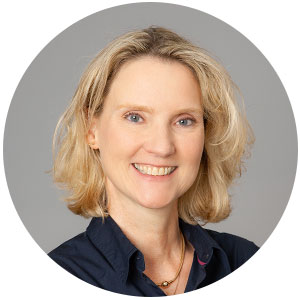
Monika Stratmann
Telefon: +49 231 75896-48
info@akademie-fresenius.de
Wir bieten Journalist:innen und Redakteur:innen eine Plattform, um in Kontakt mit Expert:innen zu treten.
Wenn Sie als Redakteur:in der Fachpresse Interesse an einem Pressepass oder einer Medienpartnerschaft haben, kontaktieren Sie uns bitte frühzeitig. Wir beraten Sie gerne.
Sprechen Sie uns an:
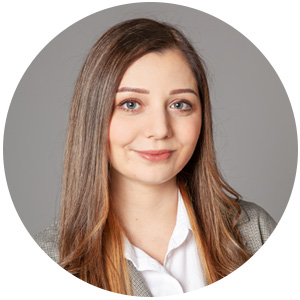
Katharina Geraridis
Telefon: +49 231 75896-67
presse@akademie-fresenius.de
© Die Akademie Fresenius GmbH